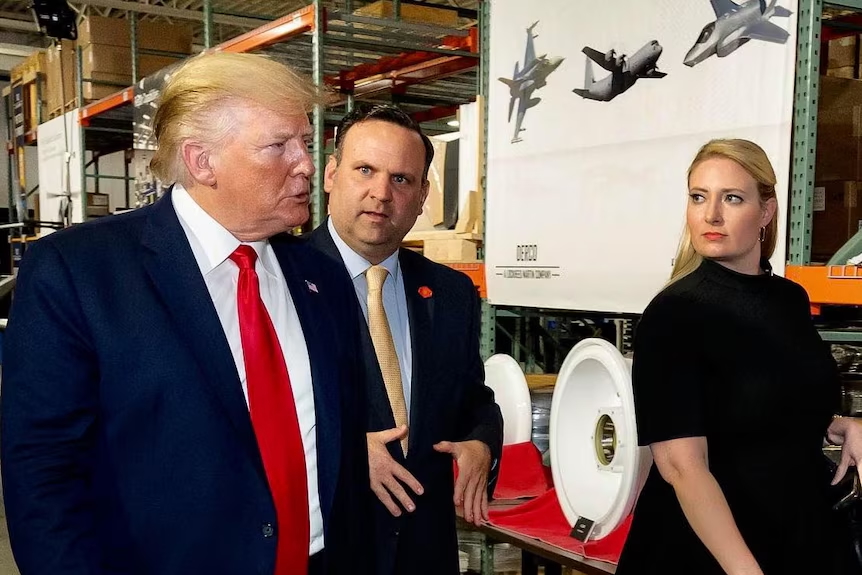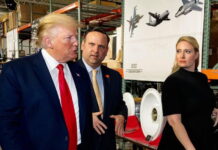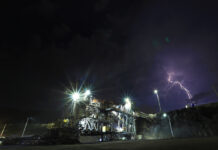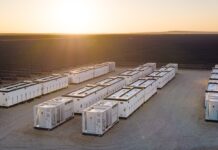Rare earth reprieve: China curbs export controls

US President Donald Trump and Chinese President Xi Jinping have reached a trade and economic deal to suspend additional export controls on rare-earth metals, according to the White House.
In a diplomatic breakthrough, China has established a one-year suspension period for its most recent rare earths export control package implemented on October 9 and will issue general licenses valid for exports of rare earths, gallium, germanium, antimony and graphite.
According to the White House, China agreed to pause sweeping controls on rare-earth magnets in exchange for a US agreement to roll back an expansion of curbs on Chinese companies.
US Treasury Secretary Scott Bessent says that despite deals, the US and its allies need to be wary of China.
“This is a problem that has been with us for several decades, it’s never been addressed with these rare earths or the rare earth magnets,” he said.
“The Chinese have cornered the market and unfortunately, at times, they proved to be unreliable partners.”
While providing immediate commercial relief, this framework is temporary and significantly different from a permanent agreement. Under the agreement, both China and the US can reinstate restrictions with formal notification meaning supply chains remain vulnerable.
Victory Metals (ASX: VTM) chief executive Brendan Clark says the reported easing of China’s export restrictions of critical minerals is a carefully staged piece of political theatre designed to suggest compromise, while, in reality, the most critical minerals remain weaponised under heavy export restrictions.
“The bulk of what has been exempted or loosened today are elements with little strategic importance,” he said.
“What truly matters for advanced technologies, defence systems and global supply chains are the heavy rare earths — yttrium, dysprosium and terbium — along with critical associated minerals such as scandium.
“What has not been reported is that these all remain tightly restricted under China’s export regime and will continue to be wielded as geopolitical leverage.”
Mr Clark, who has just returned from meetings with investors in the US, says the past few weeks have underscored the strategic significance of Australia’s reserves of these resources.
Victory Metals’ North Stanmore project in WA hosts some of the highest heavy rare earth ratios globally and the landmark Australia — US critical minerals framework signed in October supports the company’s position to meet the global HRE demand.
“It is clear from my meetings with investors around the world is that Australia is increasingly being seen as the long-term reliable partner for the Western world offering an emerging, reliable and sovereign alternative to China’s dominance,” Mr Clark said.
“The North Stanmore project is designed to deliver these strategic minerals at scale, giving Australia’s global allies in defence, aerospace, clean energy and advanced manufacturing sectors the secure supply chains they urgently require, and building a sustainable new resources industry for Australia.
“Investors and policy makers need to look beyond China’s very effective political theatre. The West must stop relying on manipulated Chinese narratives and start building sovereign supply chains.”
Victory Metals gets US support
Victory Metals has appointed Emma Doyle, former White House deputy chief of staff, as the company’s US strategic engagement senior advisor.
Ms Doyle’s appointment comes at a pivotal moment for the rare earths sector, following the landmark agreement between Prime Minister Anthony Albanese and US President Trump to jointly invest billions in allied rare earth and critical minerals supply chains.
Mr Clark says Ms Doyle’s appointment signals that Victory is not just participating in the critical minerals race but leading it.
“Her deep understanding of US policy and her networks across Washington will ensure our project is front and center in the [US’] critical minerals and defence supply chain agenda,” he said.
Ms Doyle’s engagement will support Victory’s efforts to secure US investment, navigate policy frameworks, and build long-term partnerships with defence, energy and manufacturing sectors.
“The West is seeking to diversify sourcing and processing capacity for these rare earth elements,” Mr Clark said.
“[Ms Doyle’s] leadership will help Victory Metals become the cornerstone of a secure, sustainable, and geopolitically aligned supply chain.
“With streamlined approvals and a can-do attitude from government, we can help build the diversified supply chains our allies urgently need.”






















